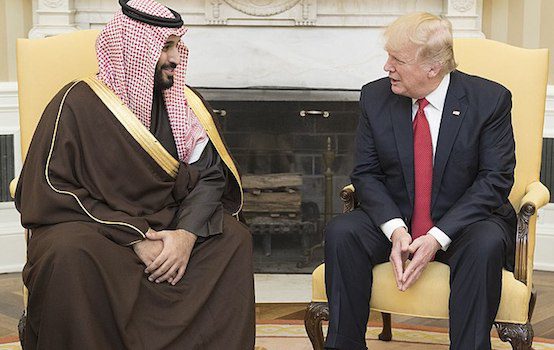America’s Bad Habit of Indulging Despotic Clients

Gregory Brew looks back at the history U.S.-Iranian relations on the occasion of the 40th anniversary of the start of the hostage crisis. He finds a recurring pattern of U.S. interference with destructive results:
A consistent theme in U.S. policy toward Iran before 1979 was a sense of missionary zeal — a determination to “save” Iran from its perceived state of instability. The United States eased up only in the 1960s, when it sensed that these efforts had succeeded.
But instead of saving Iran, American policies helped fuel the backlash that toppled the shah. This is perhaps the most relevant lesson 40 years after the hostage crisis, a realization that Iran is itself a nation, not a subject to be experimented upon, and that U.S. actions, however well-intentioned, often have dire unexpected consequences.
One of the major flaws in U.S. foreign policy both during and after the Cold War has been this impulse to meddle in the internal affairs of other states ostensibly for their own good. The U.S. has a habit of treating these countries as pieces on a board and not as states with their own rights and sovereignty. They are often viewed and discussed as if they are “ours” to “lose,” and U.S. interference is justified in the minds of our leaders when there is a danger that a country may be “lost” to the influence of a rival or to the preferences of its own people. The more that the U.S. treats another country as its plaything or experiment, the more likely it is that the country will be “lost” because the people living there will grow tired of having their country mistreated. The presumption that the U.S. has the right to interfere in their affairs is usually paired with a very superficial understanding of the politics and history of the country, and that produces policies that are bound to provoke resentment and hostility over time. The gains that the U.S. gets from this interference don’t last very long, but they poison relations with the country for years or, in this case, decades to come.
Brew comments on how the shah’s modernization program caused Washington to ease up on his government:
In 1963, however, the shah launched his “White Revolution,” a campaign designed to consolidate his power while illustrating his modernizing bona fides. While the changes proved fairly unsuccessful at winning popular support for his regime, or creating prosperity in Iran, the shah’s strategy scored one major success: It reversed the perceptions of the U.S. government, which hailed him as a “revolutionary monarch.” In a 1964 interview, Komer embodied this changed perception, asserting that “any observer would call Iran one of the bright spots in the Middle East. The country is moving.”
I am hardly the first one to make this comparison, but I am struck by the similarities between the portrayal of the shah as a “revolutionary” and a “modernizer” and the official enthusiasm for Mohammed bin Salman that we saw in the first year and a half after he became crown prince. The U.S. keeps identifying despots and authoritarians as “modernizers” without regard for the abuses that they commit in pursuit of their supposed modernization, and it aligns itself closely with these rulers on the misguided assumption that they represent the future of their respective countries. In the shah’s case, he was the last member of his dynasty and the last monarch in Iran, and it turned out that betting on him for “stability” was a colossal mistake. To the extent that the U.S. is still betting on Mohammed bin Salman as the future of Saudi Arabia, our government is repeating that mistake, and it will likely come back to haunt us.
Brew continues:
But rather than reflecting a changed reality on the ground, this newfound perception of progress was a self-delusion spurred by the oil-rich monarch emerging as a major purchaser of U.S. weapons and a crucial Cold War ally in the Middle East.
We see much the same self-delusion now from the Trump administration with respect to the Saudi crown prince. He is touted as an important “ally” when he is really nothing of the kind, and weapons sales are used as the main justification for continued U.S. support. The comparison isn’t perfect, but it should give us pause that our government is repeating the same errors of indulging an authoritarian ruler to the detriment of regional security and U.S. interests.
Comments